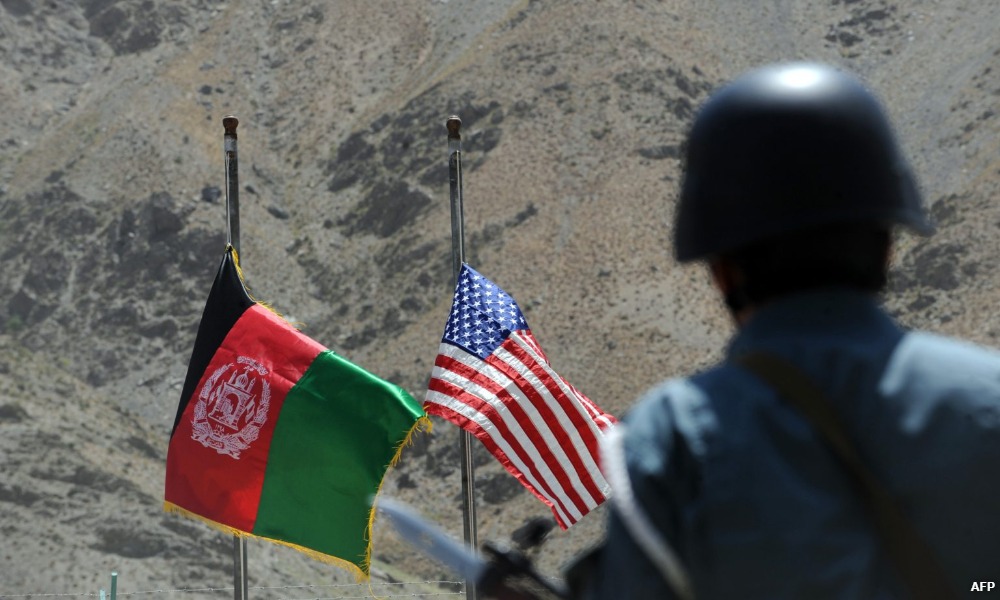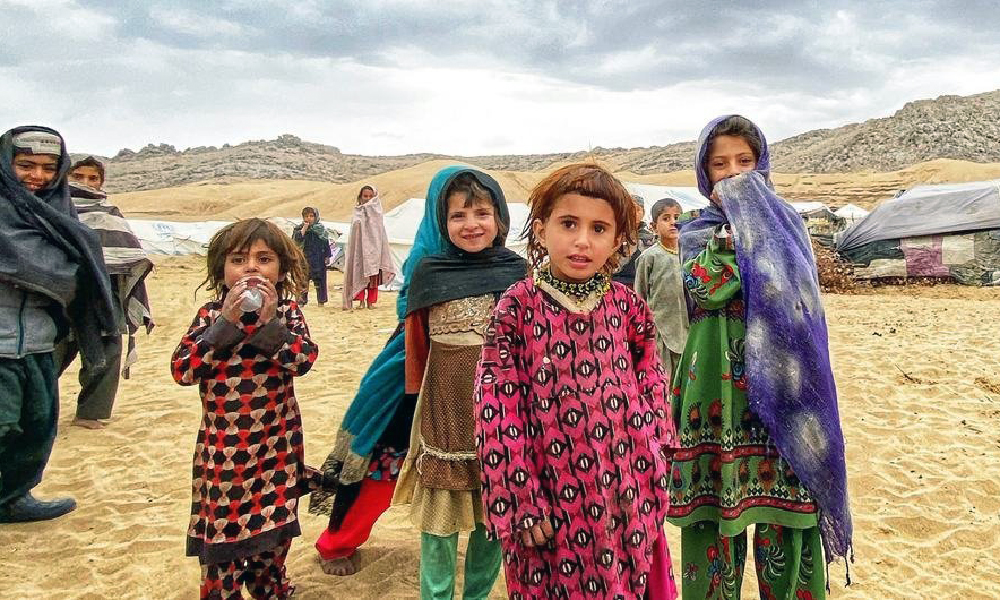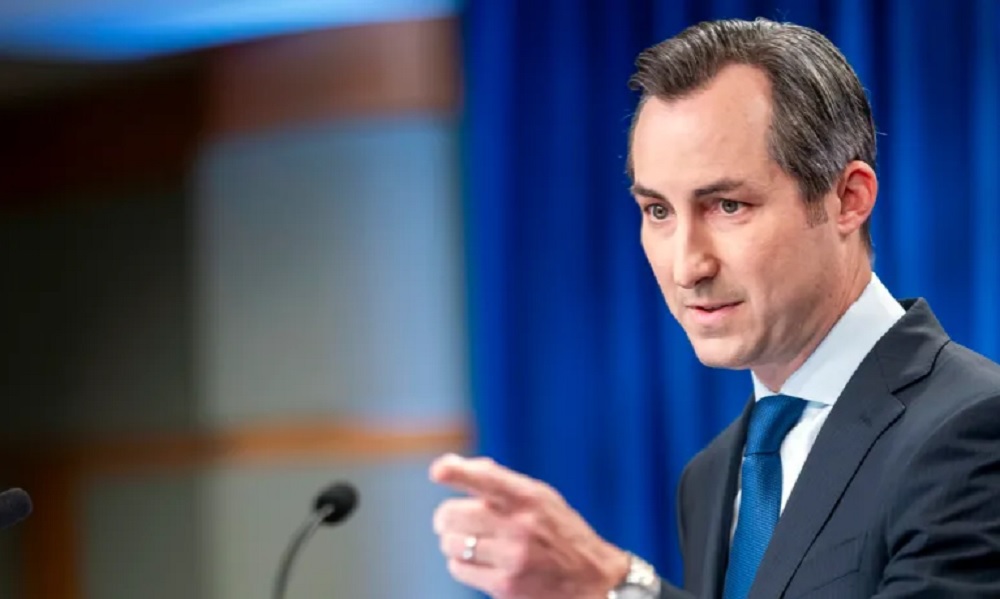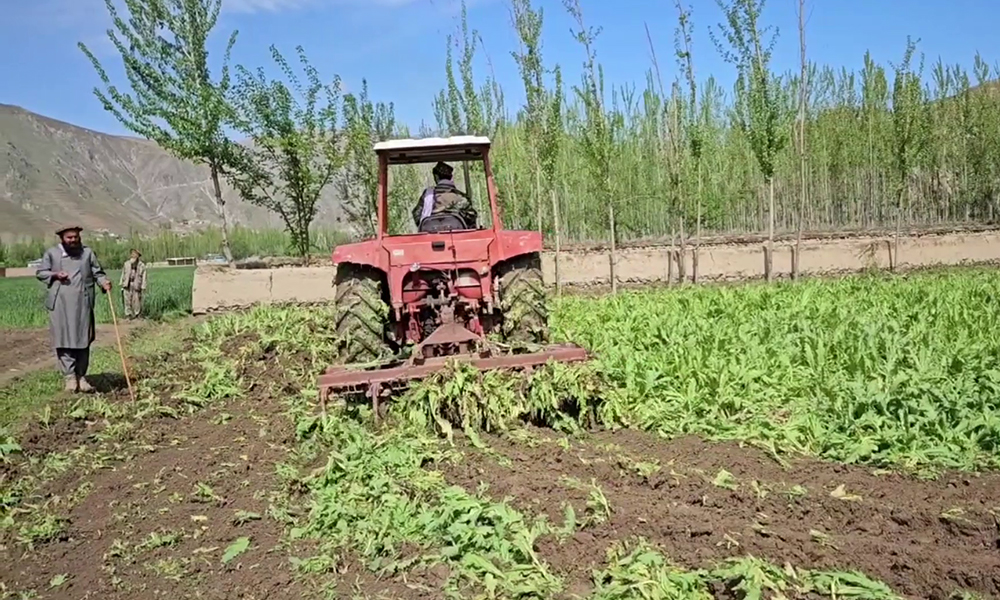Latest News
SIGAR warns of continued threat – with or without peace

The United States’ Special Inspector General for Afghanistan Reconstruction (SIGAR) warned on Wednesday night that security remains the most crucial and enduring high-risk area for Afghanistan and with or without a sustainable peace agreement and nationwide ceasefire, Afghanistan will likely continue to be threatened by multiple violent-extremist organizations.
Presenting SIGAR’s 2021 High-Risk List to US Congress, John F. Sopko, Special Inspector General for Afghanistan Reconstruction, said any political agreement risks subordinate groups going rogue, possibly manifesting as another insurgency or insecurity from criminal gangs or networks.
These issues could become even more pronounced if US forces are no longer in country to provide counterterrorism support and to train, advise, and assist Afghanistan’s security institutions, his report stated.
He said that in keeping with SIGAR’s statutory mandate to promote economy, effectiveness, and efficiency, the High-Risk List identifies serious risks to the United States’ $143 billion reconstruction effort in Afghanistan.
He also pointed out that this report is issued at a time when peace negotiations between the Afghan government and the Taliban are stalled amid continuing high levels of violence, putting the reconstruction effort at greater risk than ever before.
“As we note in this report, whether or not the United States continues to withdraw its troops from Afghanistan pursuant to last year’s withdrawal agreement with the Taliban, the new Administration and Congress will have to decide whether and to what extent reconstruction will continue.
“Although Afghanistan’s leadership have often stated that their goal is self-reliance, Afghanistan today is nowhere near to being self-reliant – especially in funding its government operations, including military and police – from its own resources.
“And, as highlighted in our report, reconstruction aid helps keep Afghanistan from reverting to a terrorist safe haven,” Sopko said.
He stated that “today the gains from our nation’s investment in Afghanistan’s reconstruction face multiple threats: continued insecurity, uncertain post-peace settlement funding, the challenge of reintegrating fighters, endemic corruption, lagging economic growth and social development, threats to women’s rights, the illicit narcotics trade, and inadequate oversight by donors.”
He also pointed out that the level of violence has increased, including not only attacks against Afghan security forces, but also bomb attacks on civilians and targeted assassinations of mid level officials, prominent women, and journalists.
In addition, the COVID-19 pandemic is overwhelming Afghanistan’s health sector and having a severe impact on its economy and people, he stated.
Sopko said this report is “intended to provide an independent and sober assessment of the various risks now facing the Administration and Congress as they seek to make decisions about the future of the U.S. mission in Afghanistan.”
The High-Risk List focuses on elements of the US reconstruction effort in Afghanistan that are essential to success; at risk of failure due to waste, fraud or abuse; and subject to the control or influence of the US government.
Key Factors
By using these criteria, SIGAR identified eight high-risk areas:
• Increasing Insecurity
• Uncertain Funding for a Post-Peace Settlement
• The Need to Reintegrate Ex-Combatants
• Endemic Corruption
• Lagging Economic Growth and Social Development
• Illicit Narcotics Trade
• Threats to Women’s Rights
• Inadequate Oversight
The report stated that while security remains the most crucial and enduring high-risk area for Afghanistan because the Taliban have not significantly changed their tactics, high levels of violence, or political objectives, and terrorist groups in Afghanistan such as Islamic State-Khorasan (IS-K/Daesh) and al-Qaeda remain in the country.
“With or without a sustainable peace agreement and nationwide ceasefire, Afghanistan will likely continue to be threatened by multiple violent-extremist organizations.
“Any political agreement risks subordinate groups going rogue, possibly manifesting as another insurgency or insecurity from criminal gangs or networks.
“These issues could become even more pronounced if US forces are no longer in country to provide counterterrorism support and to train, advise, and assist Afghanistan’s security institutions,” the report read.
It also noted that the long-term danger for Afghan women is that Afghan peace negotiations break down, plunging the country into worse violence. “Women and girls suffer not only loss of life, injury, disability, and mental trauma, but also the loss of male breadwinners, increasingly desperate poverty, the social stigma and discrimination that accompany widowhood and permanent disability, and reduced access to basic services.”
The SIGAR report also noted that there are between 55,000 and 85,000 Taliban fighters and that depending on the terms of a peace agreement, some Taliban fighters will be integrated into the Afghan National Defense and Security Forces; while others will need to transition to productive noncombatant status in civil society.
According to SIGAR, Afghanistan remains exceptionally reliant on foreign assistance – specifically with donor grants that total at least $8.6 billion per year which currently finances almost 80 percent of Afghanistan’s $11 billion in public expenditures.
“Afghanistan remains exceptionally reliant upon foreign assistance, creating both an opportunity for donors to influence events there as foreign troops depart and risks to a potential peace if they reduce assistance too much, too fast, or insist on conditions that cannot be achieved by the parties to the conflict,” the report read.
SIGAR also warned that the Afghan government’s limited fiscal capacity may be inadequate to sustain the infrastructure, such as roads, reliable power generation, and economic supply chains.
“The Afghan government’s lack of financial sustainability is an issue affecting all high-risk areas identified by SIGAR,” the report read.
SIGAR also noted that the detrimental effects of the illegal drugs trade in Afghanistan does not only affect the health system but also helps fund insurgents, foster corruption, and provoke criminal violence.
“Even in the midst of the COVID-19 pandemic, Afghanistan’s opium economy has remained resilient. The United Nations Office on Drugs and Crime reported that Afghanistan’s 2020 opium-poppy harvest was largely uninterrupted by COVID-19,” the report read.
Another key risk factor was government’s failure to effectively address systemic corruption in Afghanistan.
SIGAR stated the Afghan government has taken limited steps to curb systemic corruption, but more tangible action is required.
“The Afghan government often makes “paper” reforms, such as drafting regulations or holding meetings, rather than taking concrete actions that would reduce corruption, like arresting or enforcing penalties on powerful Afghans.”
Sopko meanwhile stated that regardless of the course chosen by the US, SIGAR, as the largest oversight presence in Afghanistan and the only one with whole-of-government authority, will remain the best US defense against the waste, fraud, and abuse of US taxpayer funds in Afghanistan.
Latest News
250,000 Afghan children need homes, food, education after returning from Pakistan

In the wake of an announcement by Pakistan that it intends to start Phase Two of deportations of Afghans, Save the Children said Thursday that almost a quarter of a million Afghan children need proper homes, food, and access to education after returning from Pakistan in the past seven months.
In a statement issued by the organization, Save the Children said more than 520,000 Afghans have returned from Pakistan since September last year, after Pakistan said all undocumented foreigners must leave the country voluntarily or face deportation.
Nearly half of all the returnees are children.
A survey by Save the Children of families who have returned to Afghanistan – and the communities who are hosting them – found that nearly all (99%) do not have enough food for the next one to two months.
About three-quarters of returnees and families in host communities reduced portion sizes or restricted the food consumption of adults so small children could eat.
About 40% of returnees and host families surveyed had to borrow food or rely on friends and relatives for at least three days a week – with 13% of returnees and 9% of host families saying they had to get food from others every day.
Almost 8 million children in Afghanistan – or one in three – are facing crisis levels of hunger.
Nearly one in six families live in tents, according to the survey, with most returnees having little or no means to support themselves.
Only a third had managed to bring assets back with them from Pakistan.
Nearly half (47%) said there were no jobs available in Afghanistan, with 81% saying that they do not have any skills that could lead to employment.
Almost two thirds (65%) of children who have returned to Afghanistan have not been enrolled in school. The majority (85%) told Save the Children that they don’t have the necessary documents to register and enroll in school.
In Pakistan, more than two thirds of these children had been attending school.
Arshad Malik, Country Director for Save the Children in Afghanistan, said: “Families are returning to Afghanistan with virtually nothing. Most are relying on relatives or friends to support them – and these communities already have little to support themselves.
“The return of so many people is creating an additional strain on already overstretched resources. Children need support and stability. Many undocumented Afghan children were born in Pakistan – Afghanistan is not the place they call home,” he said.
He added that in addition to the returns from Pakistan, 600,000 Afghans arrived from Iran last year. Also, “families have been forced from their homes by multiple disasters, including the series of earthquakes in Herat and the ongoing drought. Afghanistan is also now home to the second largest number of internally displaced people in the world – or roughly 1 in 7 people,” Malik said.
According to him, Afghanistan not only needs urgent funding from international donors and governments – but also needs long term, community-based solutions to help all displaced Afghans rebuild their lives.
Latest News
US asks IEA to ensure Afghan soil not used by terrorists

The US State Department on Thursday asked the Islamic Emirate of Afghanistan (IEA) to ensure that Afghanistan is not used to support terrorist groups, movement of terrorists or acts of terrorism.
A State Department spokesman told Geo News that Washington has “been very clear that we will judge the Taliban (IEA) by what they do, not what they say.”
“The Taliban (IEA) wants international legitimacy. This requires the Taliban (IEA) to meet their commitments to the international community,” the official said.
The spokesperson said the most enduring interest for the US in Afghanistan was to ensure that it never again became a safe haven for terrorists, especially for those who wished harm to the US or its partners or allies.
“We are in regular communication with Pakistani leaders as a part of our partnership on counterterrorism issues. We continue to discuss Afghanistan in detail, including through our annual counterterrorism dialogue and other bilateral consultations,” the official said.
Islamabad has time and again urged Kabul to take meaningful action against terrorists using Afghan soil to launch attacks inside Pakistan.
However, the IEA has repeatedly rejected claims of militant groups in the country and have said they will not allow any group to threaten a country from Afghanistan.
On Tuesday, the Pakistan Army’s top commanders were briefed on how terrorist groups operating from Afghanistan pose a threat to regional and global security, besides acting as proxies against Pakistan and its economic interests, especially the China-Pakistan Economic Corridor (CPEC).
A day ago, the Inter-Services Public Relations (ISPR) said security forces had killed seven terrorists trying to infiltrate the Pakistan-Afghanistan border in the North Waziristan district.
In a statement, the military’s media wing had said the security forces on April 16 had detected a movement of a group of seven terrorists near the border in the Spinkai area of Ghulam Khan in the tribal district, Pakistan’s The News reported.
Latest News
Over 6,000 acres of land cleared of poppies in Badakhshan

Badakhshan Police Command says it has cleared more than 6,000 acres of poppy fields in northern Badakhshan province.
The anti-narcotics department of Badakhshan Police Command says that since the beginning of the campaign to destroy the poppy fields in this province, they have cleared more than 6,000 acres of land.
According to these officials, poppies have however been planted in more than 10 districts this year.
The anti-narcotics department of the Badakhshan Police Command says that the campaign to destroy the poppy plantations started two months ago and continues.
According to the officials, during this period, 6,300 acres of land has been cleared.
Some of the farmers whose fields were destroyed say that poppy is more profitable than other agricultural products, but now that their land has been cleared, they want alternative crops.
According to the officials, Kishim, Argo, Darayimand and Jurm districts are among the districts where poppies are cultivated.
-

 Sport5 days ago
Sport5 days agoACL draw to be broadcast live on ATN channels
-

 Sport4 days ago
Sport4 days agoACL fever grows as fixtures finalized
-

 World4 days ago
World4 days agoUS will not take part in any Israeli retaliatory action against Iran
-

 Latest News4 days ago
Latest News4 days agoOver 50 people dead in traffic accidents over Eid
-

 Latest News4 days ago
Latest News4 days agoUS identifies Kabul airport suicide bomber
-

 Business4 days ago
Business4 days agoAfghanistan-Kazakhstan chamber of commerce opens in Herat
-

 Latest News4 days ago
Latest News4 days agoGood rains enable DABS to increase power production in Kabul
-

 World3 days ago
World3 days agoIsraeli military vows response to Iran attack as calls for restraint mount
























